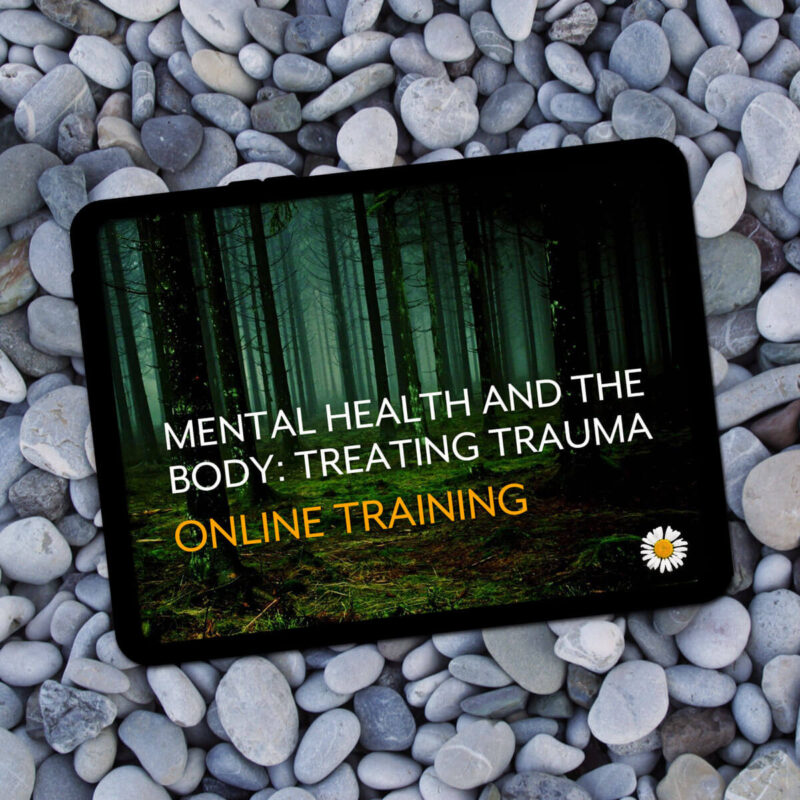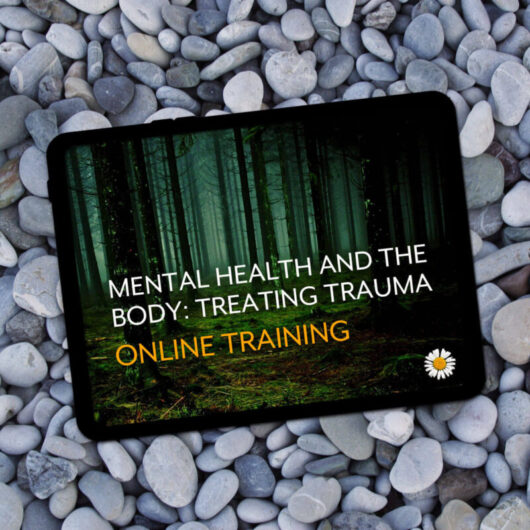FREE TASTER | CLICK HERE TO PURCHASE THE FULL COURSE
Trauma is a supremely physical phenomenon, manifesting not just in our emotions and mental states, but also in our bodies. Trauma results in significant emotional distress and fear-based dysregulation, but also in long-term bodily inflammation and sleep disturbances, which in turn inhibits the processing of traumatic memory. And so it makes sense that our bodies also need to be involved in recovering from trauma: this course shows you how.
Reviews for the full course:
“I really enjoyed this course. It will completely alter the way I work with trauma in terms of psychoeducation. I have learnt a lot about polyvagal theory which has been really useful for clients but I did not realize the importance of sleep and diet in treating trauma.”
“All aspects of the training were fascinating, relevant and very accessible to understand. Sections were the right length to be able to go into detail on subjects but also make the information digestible. Absolutely love how Carolyn manages to distill complex information into a concepts that can be understood.”
“Very insightful as all Carolyn’s training are. She always leaves me with this eager to know more, to go and look for more information and to educate myself in order to support my clients as best as I can. Thank you Carolyn for all your knowledge and for sharing it.”
“I thought this was brilliant! Really enjoyed this and this will help me in my work with my clients. Particularly found helpful the module on inflammation and link to depressions, anxiety and other conditions. ”
“Fabulous course, masses of information presented in an accessible way.”
“Accessible and easy to understand training backed up by a significant amount of research and personal experience. ”
“I found this training very helpful. It was clearly explained and well referenced.Really interesting and highlighted new areas of focus to consider for me as a Counsellor.”
Free access to a ‘taster’ extract of Mental Health and the Body: Treating Trauma Online Training
Full course description:
On top of talking therapies, how else can we tackle the impacts of trauma? What can we do either alongside therapy, or whilst waiting for it, to maximise our brain and body’s ability to heal?
We know that trauma profoundly affects our body. In ‘Trauma and the Body: Somatisation and Dissociation’ I looked at how trauma greatly increases the risk of heart disease, diabetes, cancer and some autoimmune disorders. We looked at body memories and how our experience of pain is influenced by our psychological state.
But what about the flip side of all of that? How does the state of our body influence our mind and emotions? That’s what I look at in this course. I delve into some cutting-edge research and thinking about how our mental health – things like our mood, our emotions, even our compulsions – are at least in part driven by our physiology. We look at:
- How the bacteria in our gut may influence our mental state
- How depression and anxiety may be generated by inflammation and our immune system
- How our hormones impact how we feel and act
- How what time we get up on a morning can set the course of our emotions throughout the day
- How sleep – a certain amount of it, and a certain type of it – is absolutely essential for recovery from trauma
- How and why trauma leads to parasomnias such as nightmares and sleepwalking
- How junk food can increase the likelihood of flashbacks and prevent the resolution of traumatic memories
- And lots more!
We all know instinctively that our bodies influence our brains, and our brains influence our bodies, but we don’t always know why. That’s what is unpacked in this course, to see if, in our fight against trauma, there are other tools and strategies that we can use, on top of our standard talking therapies approaches.
This course is rooted in a combination of the latest research alongside my own journey: from years battling with chronic fatigue syndrome and dissociative identity disorder to vastly improved health, both physically and mentally. At the end of this course, my goal is that we’ll all have a much clearer idea of what we can do to help both ourselves and our clients be in the best shape possible, both mentally and physically, so that recovery from the impacts of trauma isn’t just a pipe-dream, but a solid plan.

